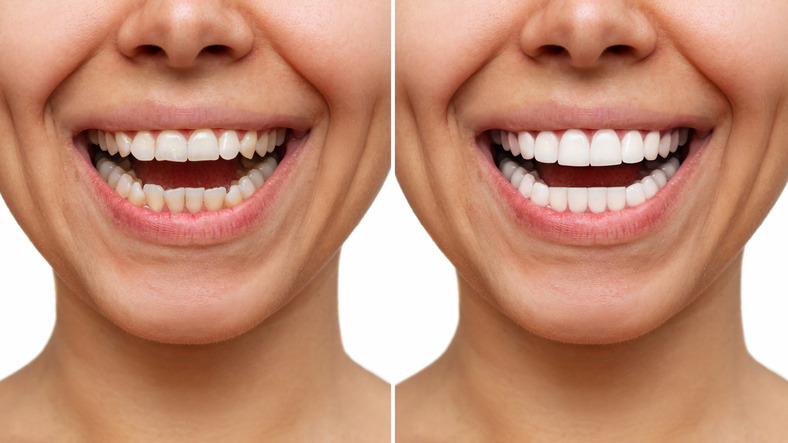A Beverly Hills cosmetic dentist specializes in a range of dental procedures aimed at enhancing the aesthetics of a person’s smile, and one of the versatile treatments they offer is cosmetic tooth bonding.
Cosmetic tooth bonding, a popular dental procedure, offers an effective solution for various dental imperfections, allowing individuals to enhance their smiles and regain confidence in their appearance. This non-invasive and versatile treatment has become a preferred choice for many seeking to address issues such as chipped, discolored, or misaligned teeth. Let’s delve deeper into the world of cosmetic tooth bonding, understanding its nuances, benefits, and how it transforms smiles.
What is Cosmetic Tooth Bonding?
Cosmetic tooth bonding, sometimes referred to as dental bonding or teeth bonding, is a dental operation where teeth are repaired or enhanced through the application of a resin material that matches the color of the teeth. Several dental conditions are frequently treated with this procedure, including:
- Chipped or Cracked Teeth: Bonding can effectively restore the structure of a tooth that has suffered minor damage.
- Discoloration: Stains or discolorations that whitening procedures might not be able to adequately remove can be covered by teeth bonding.
- Closing Spaces: By assisting in the closure of little gaps or spaces between teeth, it can enhance appearance in general.
- Reshaping: Bonding can change a tooth’s length or shape to create a grin that is more even and well-balanced.
- Protection: It might act as a barrier to keep exposed tooth roots from becoming sensitive or decaying.
What is Teeth Bonding, and How Does It Work?
Applying a composite resin substance directly to the surface of teeth is known as teeth bonding. Many people find the process to be a convenient alternative because it is usually completed in a dental office in just one visit.
Procedure Overview:
Consultation: The procedure normally starts with a consultation during which the dentist assesses the patient’s oral health, goes over expectations, and develops a plan of care.
Preparation:
Bonding requires minimal prior preparation. In order to match the composite resin’s color to the patient’s natural teeth, the dentist may employ a shade guide.
Bonding Procedure:
To improve the bonding material’s adherence, a conditioning liquid is administered after the tooth’s surface has been carefully filed. After that, the putty-like resin is placed, shaped, and polished to give it the correct appearance.
Curing:
The resin is hardened using a laser or special light. The dentist forms and polishes the material when it solidifies to make it blend in perfectly with the original teeth.
Final Assessment:
The dentist checks the alignment of the bite and the patient’s comfort level overall, adjusting as needed to get the desired outcome.
How Does Teeth Bonding Work?
A strong, tooth-colored material that can be closely matched to the patient’s natural tooth color is the composite resin used in tooth bonding. Because of its adaptability, dentists can bend and mold it to fit each patient’s unique set of teeth.
The bonding material forms a strong link with the tooth surface by successfully adhering to it. Because of this durability, the patient can practically immediately return to their regular eating and dental care practices following the treatment.
What are the Pros and Cons of Composite Bonding for Teeth?
Composite resin-based cosmetic tooth bonding has benefits and things to keep in mind. Making educated decisions about this dental surgery can be facilitated by being aware of the benefits and drawbacks.
Pros of Composite Bonding:
Aesthetic Enhancement: By filling in gaps, stains, and chips, composite bonding can dramatically improve teeth’s appearance and produce a smile that is more aesthetically pleasing.
Conservative Approach:
Compared to other cosmetic procedures like veneers or crowns, it’s a less intrusive process that frequently involves little to no change of the original tooth structure.
Single Visit Procedure:
Bonding is a convenient choice for people looking for quick results because it can often be finished in a single dental visit.
Versatility:
The substance used for bonding, composite resin, can be exactly matched to the color of teeth, giving the appearance of being seamless and natural. Its contouring and form are also changeable.
Affordability:
Bonding is usually more affordable than many other cosmetic dental procedures, which makes a wider spectrum of patients able to get it.
Reduced Sensitivity:
Bonding can serve as a barrier to shield exposed tooth roots from the heat and cold of meals and liquids.
Drawbacks of Composite Bonding:
Easily Stainable: Although the bonding substance has some stain resistance, it could not have as much as porcelain or other dental materials. It may deteriorate with time and need to be touched up or replaced on occasion.
Concerns about Durability:
Although composite bonding is strong, it does not endure as long as veneers or crowns. With time, the material may crack or break, especially in people who have certain habits like biting their nails or harsh objects.
Maintenance Needed:
To extend the life of the bonded teeth, regular maintenance is necessary. This includes good oral hygiene and frequent dental checkups.
Not Suitable for Major Restorations:
Although bonding works well for little cosmetic adjustments, it might not be the best choice for larger restorations. Alternative procedures like veneers or crowns may be suggested in these circumstances.
Skill-Dependent Outcomes:
The dentist’s ability to shape and bond the composite material is a major factor in the bonding process’ success. Results from an untrained practitioner might not be as desired.
Is Dental Bonding Permanent?
Although dental bonding is a dependable and efficient cosmetic treatment for a range of dental problems, it is not regarded as a long-term cure. It is critical to comprehend the characteristics of bonding materials and how long they last in order to control expectations for this process.
Dental bonding materials, mainly composite resin, have a long lifespan but are not infallible. A number of variables can affect how long a connection lasts, such as:
Material Quality:
Long-lasting outcomes are often achieved by skilled dentists using high-quality bonding materials and procedures.
Oral Habits:
Biting nails, chewing on hard objects, and grinding your teeth (bruxism) can all place undue strain on your bonded teeth, which can cause the bonding material to chip or wear down too soon.
Oral Hygiene:
Maintaining good oral hygiene, which entails consistent brushing, flossing, and yearly dental examinations, is crucial to the durability of dental bonding.
Staining and Discoloration:
Although the composite resin used in bonding is stain-resistant, it may eventually become discolored if it comes into contact with specific foods, drinks, or smoke.
Durability and Upkeep:
With appropriate care, dental bonding can endure up to ten years on average. However, in order to guarantee that the bonded teeth keep their beauty and performance, periodic care may be necessary:
Touch-ups:
To address chipping, staining, or wear of the bonding substance, periodic touch-ups or replacements may be required.
Polishing:
To keep the bonded teeth smooth and natural-looking, dentists might polish them on a regular basis.
Monitoring:
By scheduling routine dental checkups, dentists can keep an eye on the state of the bonded teeth and take early corrective action if necessary.
Factors Affecting Longevity:
Although dental bonding is not permanent, a number of factors can affect how long it lasts:
- Material Quality: The length of the bonding process can be greatly influenced by the quality of the bonding material and the techniques employed during the process.
- Oral Care: Dental bonding can last longer if you maintain good oral hygiene and abstain from behaviors that put undue strain on your teeth.
- The endurance and look of the bonding may be affected over time by the patient’s lifestyle choices, including diet and dental hygiene practices.
Personal Dental Office – The Best Cosmetic Dentist Beverly Hills!
Discover the epitome of excellence in cosmetic dentistry at Personal Dental Office, your premier destination for a Beverly Hills cosmetic dentist. With our dedicated team of skilled professionals and state-of-the-art facilities, we specialize in crafting radiant, natural-looking smiles that exude confidence and beauty.
Book your consultation today and embark on a journey toward a captivating smile makeover at Personal Dental Office, where every smile is crafted to perfection.
Share This Article.
Related Posts
Recent Posts
Our Hours
| Monday | 8:30 – 5:30 |
| Tuesday | 8:30 – 5:30 |
| Wednesday | 7:30 – 5:30 |
| Thursday | 8:30 – 5:30 |
| Friday | 8:30 – 5:30 |
| Saturday | Closed |
| Sunday | Closed |
Serving the Communities of Beverly Hills, West Hollywood, & LA and the Neighborhoods of Mid-Wilshire & the Miracle Mile



